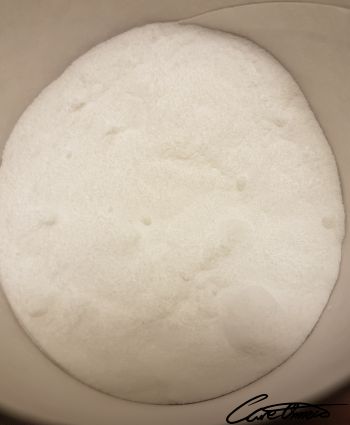What Is Potassium & What Foods Can I Find It In?

Potassium is a major mineral and an essential nutrient.
It’s present in all body tissues and is required for normal cell function and for maintaining fluid volumes in the body.
The organic potassium salts in foods have a broad range of health benefits for the heart, kidney, bone, and other tissues.
Potassium is found in many foods and can be useful in your diet. Examples include fruits, vegetables, meat, beans, and dairy products.
Table of Contents
Potassium Is Essential For Health
Potassium is an essential mineral that is needed by all tissues in the body.
Its main role in the body is the maintenance of total body fluid volume, acid and electrolyte balance, and normal cell function. (source ◳)
Potassium is involved in many vital physiological processes, including nerve transmission, muscle contraction, energy metabolism, and maintenance of the acid-base balance.
Benefits Of Potassium
Fruits and vegetables, like leafy greens, beans, nuts, dairy foods, and especially potatoes, are excellent sources of potassium.
Consumption of white vegetables is associated with a decreased risk of stroke, which can be related to their high potassium content. (source ◳)
You can read about the benefits of consuming potassium in Potassium, K: 6 Research-Backed Benefits .
Not All Potassium Is Created Equal
Potassium is found in foods such as potatoes, bananas, spinach, broccoli, raisins, and most meats.
Potassium from vegetables has a greater absorption than potassium from fruits.
Potassium from nuts is better absorbed than potassium from potatoes.
Potassium from whole grains is better absorbed than potassium from refined grains.
Processing Foods Affects Potassium Content
Food processing reduces the potassium content of the food. So a diet high in processed foods and low in fresh fruits and vegetables can lead to potassium deficiency. (source ◳)
Western diets have decreased in potassium intake with reduced consumption of fruits and vegetables, and with an increase in processed foods. (source ◳)
Potassium Deficiency
Potassium deficiency is a condition where the body does not have enough potassium in the blood.
There are two main ways in which potassium deficiency is caused
- Low dietary intake of potassium
- Low blood levels of potassium
When potassium is deficient in the body, the symptoms can be
- Fatigue
- Muscle weakness
- Dry skin
- Vomiting
- Heart arrhythmia
Potassium Supplements
Potassium supplements are one of the most popular ways to raise potassium levels in the body.
But it is important to consume adequate and the right amount of potassium.
When you don't get enough potassium, your heart can get affected, leading to heart failure. Too much potassium can be toxic, especially for pregnant women.
If taking too much during pregnancy, the risk is that the baby will be born underweight and the mother will suffer from excessive urination, dizziness, and irritability.
So you have to stay within the recommended levels.
Foods You Can Find Potassium, K In
You find Potassium, K mostly in baked, vegetable, beverage, and spices and herb products.
Examples of food sources include
- Cream Of Tartar
- Baking Powder
- Freeze-Dried Parsley
- Instant Tea
- Dry Instant Black Tea
- Dried Chervil
- Coriander Leaf
Foods That Contain Potassium, K In Our Nutrition Tool
You can find regularly updated top ranked lists of foods for over 200+ nutrients in our nutrition tool.
If you are interested in what foods contain the most Potassium, K we recommend you visit our tool.
Here's our top ranked list of foods that contain Potassium, K.

